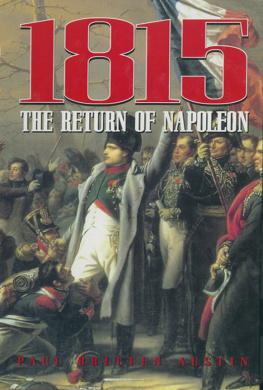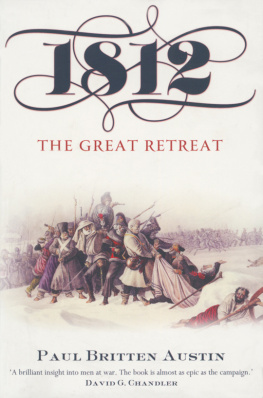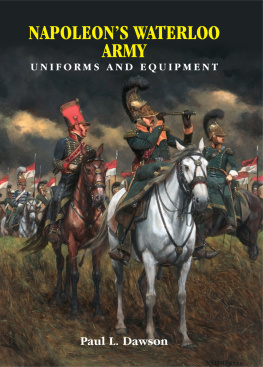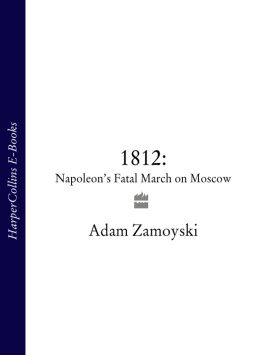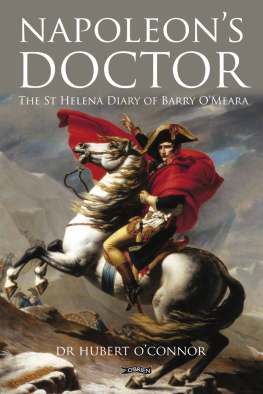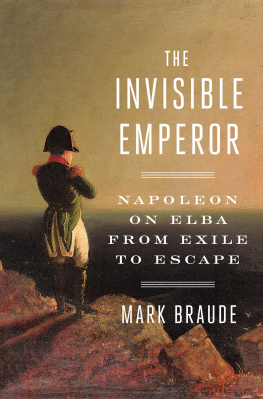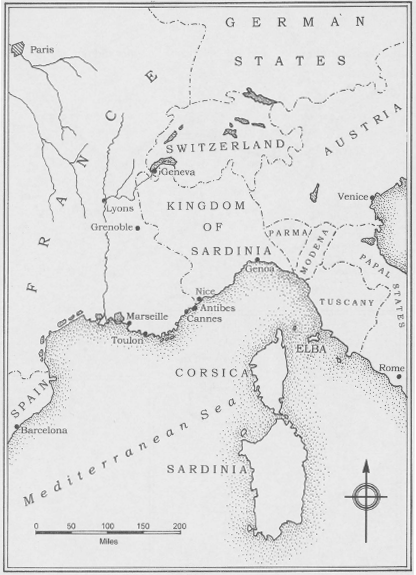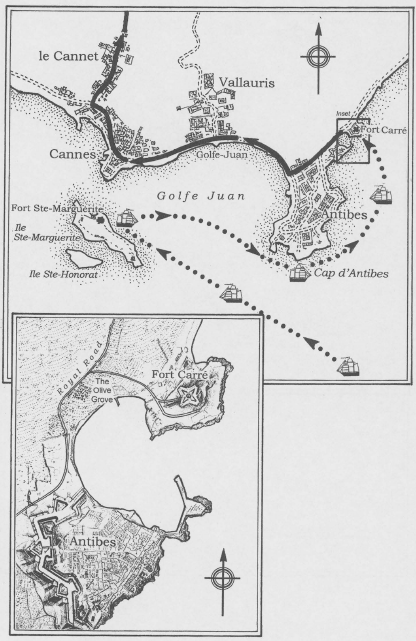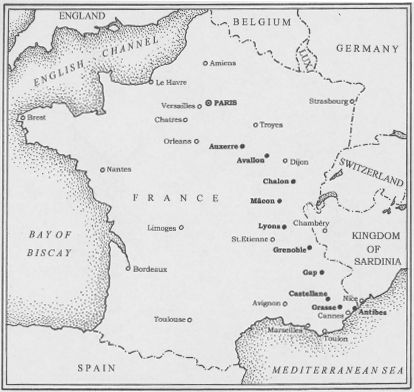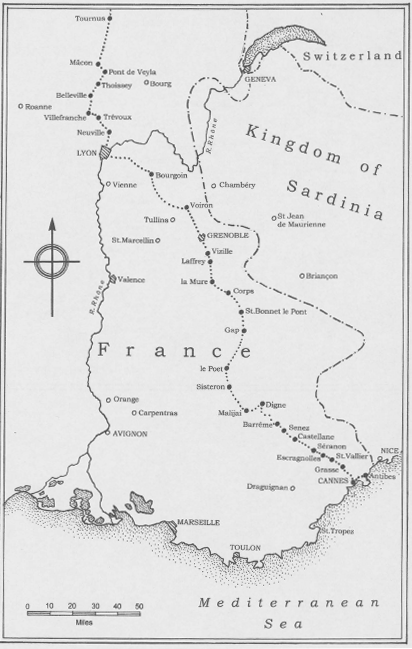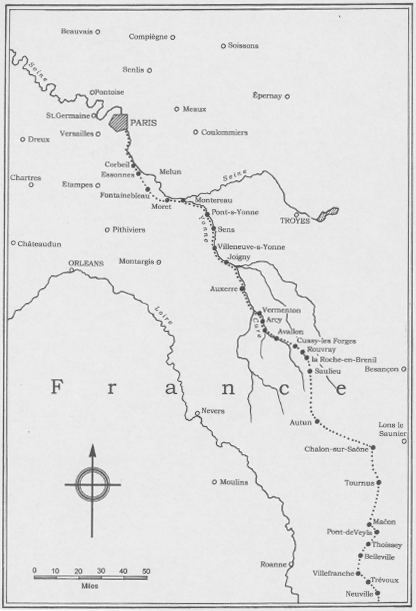1815
THE RETURN OF NAPOLEON
By the same author:
1812: THE MARCH ON MOSCOW
1812: NAPOLEON IN MOSCOW
1812: THE GREAT RETREAT
1815
THE RETURN
OF NAPOLEON
PAUL BRITTEN AUSTIN
Frontline Books
TO JOHNNY
My childhoods first playmate
and still my best critic
1815: The Return of Napoleon
First published 2002 by Greenhill Books
published in this format in 2015 by
Frontline Books,
an imprint of
Pen & Sword Books Ltd
47 Church Street, Barnsley, S70 2AS
www.frontline-books.com
Paul Britten Austin, 2015
The right of Paul Britten Austin to be identified as the author of this work has been asserted by him in accordance with the Copyright, Designs and Patents Act of 1988.
All rights reserved. No part of this publication may be reproduced, stored in a retrieval system or transmitted in any form or by any means, electronic, mechanical or otherwise without the written permission of the Publisher.
British Library Cataloguing in Publication Data
Britten Austin, Paul
1815: the return of Napoleon
1. Napoleon, I, Emperor of the French, 17691821
2. Napoleonic Wars, 18001815 Sources
I. Title II. Eighteen hundred and fifteen
940.27092
ISBN 1-85367-476-1
Library of Congress Cataloging-in-Publication Data available
For more information on our books, please visit www.frontline-books.com, email info@frontline-books.com or write to us at the above address.
Edited by Ian Heath, typeset by DP Photosetting
Printed and bound in Great Britain by Creative Print and Design (Wales),
Ebbw Vale
CONTENTS
Pages 97112
Ma foi, Im a man. I wanted people to see I still wasnt dead.
- Napoleon to Gourgaud, at St Helena
Its almost always on the past one bases ones conduct and ones hopes.
- M. Mignet, Histoire de la Rvolution Franaise
Our judgment of the course of political events depends on our conception of the men who were engaged in them. As soon as we see these individual men in a new light we have to alter our ideas of the events.
- Ernst Cassirer, An Essay on Man
T his book is a kind of sequel to my 1812 trilogy. English-language accounts of The Hundred Days naturally emphasise British experiences, or else (in proper historical fashion) hover over both sides (or indeed, in this case, several) all at once. But this is the story of 1815 as seen wholly from the French points of view for there were at least two, above all among military men.
Napoleons unheralded return from Elba, which split France diagonally in two and startled an admiring but also terrified Europe, would lead to a catastrophe every bit as great as that of 1940. Once again Frenchmen were faced with the implacable hostility of all Europes legitimate sovereigns and aristocracy determined to have done with the detestable Bonaparte once and for all, with revolutionary ideas and French militarism. And France would have to pay the price of his astounding comeback.
Once again Ive tried to describe events as far as possible in the participants own words. More particularly, I was curious to see how things fared with some of my survivors from Russia. With perky little Coignet, for instance? With slippery handsome Flahaut, the best dancer in France? With impeccably honest but unamiable Davout? With that annoying knowall Pion des Loches and his comrades of the ex-Guard artillery, such as Lubin Griois, he whose hair had turned white in the Russian snows? The patient reader of my 1812 trilogy will come across many an old acquaintance in what might be called the Grand Armys terminal circumstances; but will also make many new ones. Once again Ive italicised their names at their first appearance in the text, and have marked them with an asterisk where they also appear in the Russian trilogy.
Here, in a different way from what was the case in 1812, the question of veracity and source values arises. To a much greater degree than in 1812, many of my 1815 cameramen wrote not merely to record vivid memories, but also to justify ex post facto their choice of sides in an anguished ideological situation. Yet their pages, even so, contain so many vivid and obviously authentic glimpses of what actually happened as to yield us as close a close-up as were ever likely to get. History, after all, reposes ultimately on contemporary documents and on its actors memories. Whether such memory traces are fresh and recent or unconsciously manipulated with the passage of time, in either case they can be equally enthralling.
For all kinds and conditions of Frenchmen, but notably the veterans of the Republican and Napoleonic armies, the Hundred Days werent just a great military catastrophe, but a great socio-political trauma. At risk of their And then, three months later, decide again. Most famous and tragic of the victims, of course, would be the hero of the Great Retreat, Ney, the Bravest of the Brave. Headstrong, passionately patriotic, but no friend of Napoleon and wavering between the parties, his fate overwhelms him first in the Golden Apple inn at Lons le Saulnier; then at Quatre Bras; then on the grim plain of Waterloo; and at last under a wall (near what today is the Montparnasse Mtro station) before a firing squad. Nor, of course, should we forget the thousands who perished during the disastrous campaign. Or even Napoleon himself, that genius, angel or demon who was dominating us all!, as Sergeant-Major Larreguy de Civrieux puts it. More sharply here than in the Russian tragedy, I think, that charismatic personage comes into focus: an enigmatic middle-aged genius, who after succeeding so brilliantly with his crazy but (as it transpires upon analysis) unavoidable enterprise, becomes less and less sure of himself and succumbs to what seems to have been a half-expected fate. This time Napoleon himself, whod spend the rest of his life rewriting history and creating the legend of his own martyrdom, is one of my cameramen.
Thanks to the singular French gift for pen portraiture 1815 provides us with a gallery of very different individuals. From the foxy but in some ways, if his memoirs are to be trusted (which of course they arent), oddly naive Fouch wholl manage to swing the whole thing his own way at the crisis, only to be himself ousted by the even foxier Louis XVIII to the women who were so passionately in love with these gilded heroes. All played their parts in the disaster. Who, in imagination, isnt the secret hero of his own fate?
Farsta, Sweden, 2002
CHAPTER 1
A CRAZY ENTERPRISE

